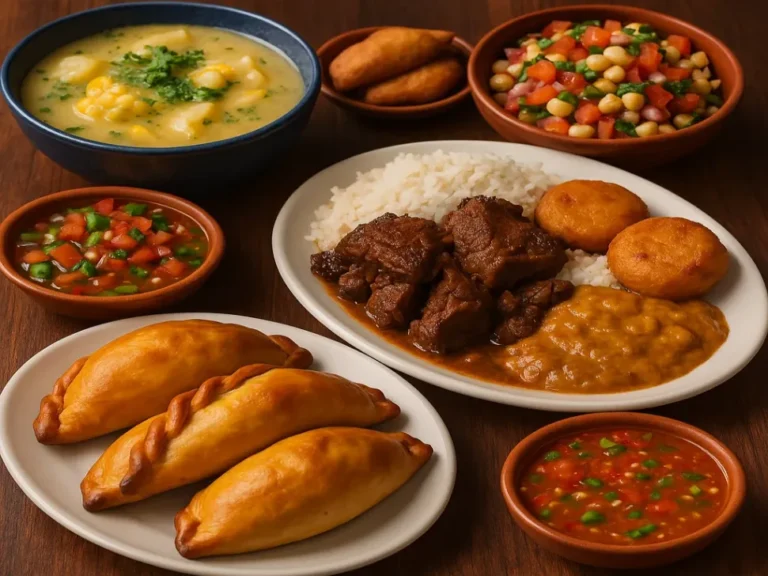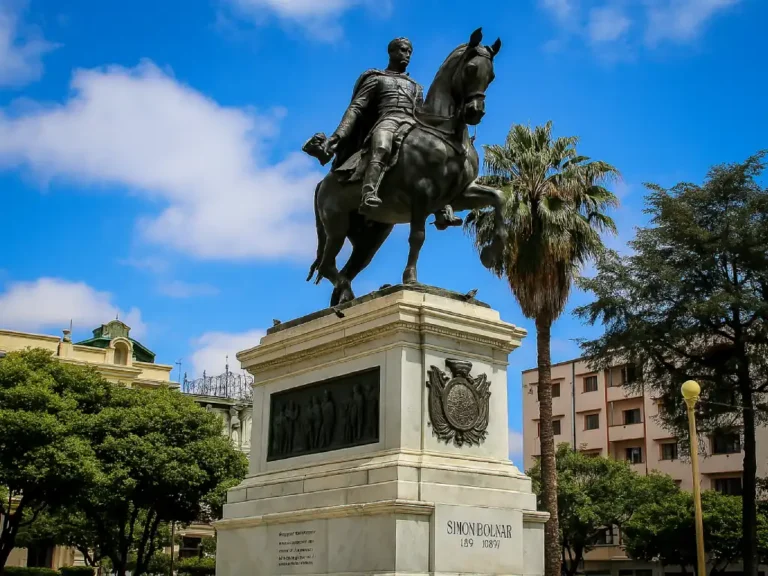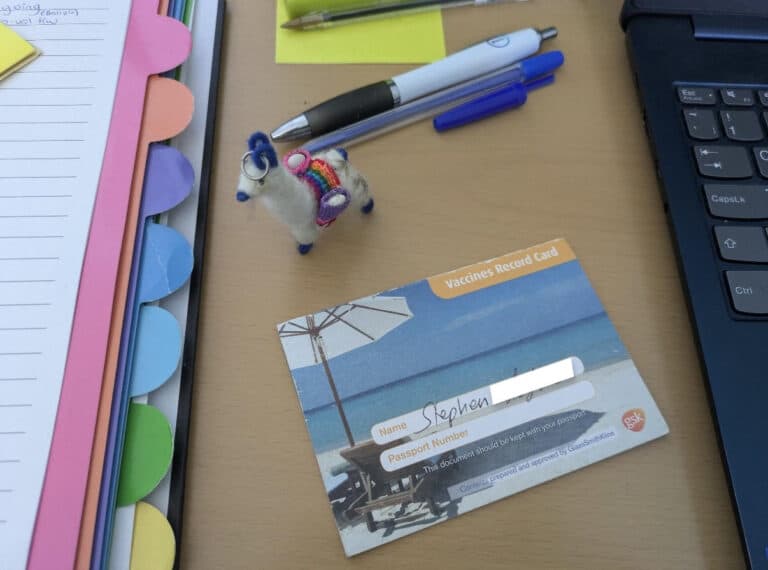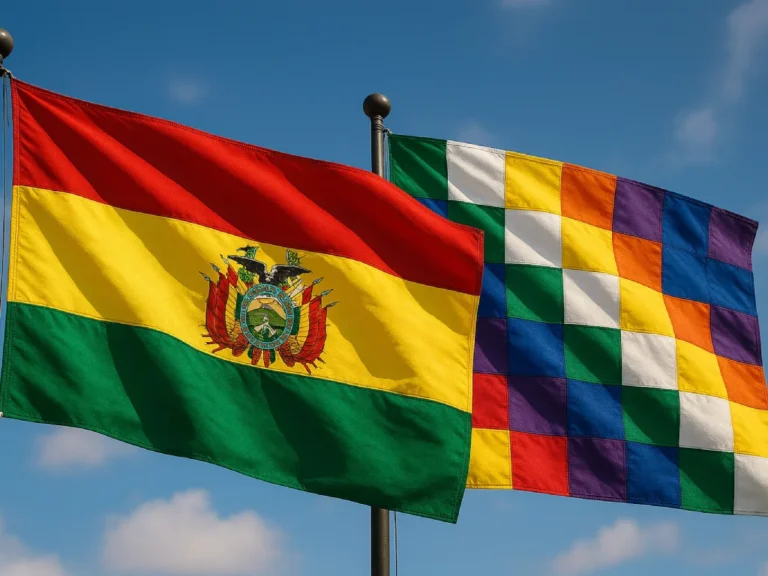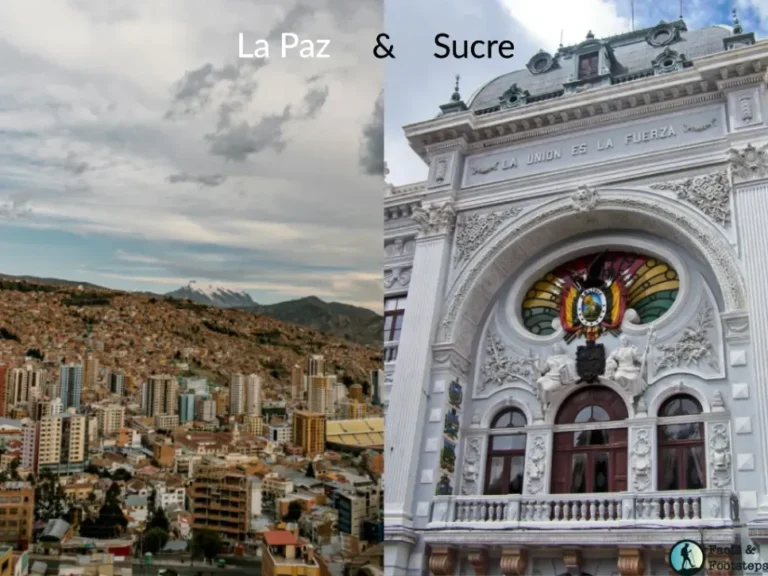What Languages Are Spoken in Bolivia? It’s not just Spanish..

If you think Bolivia’s just a Spanish-speaking country, you’re not wrong… but you’re not totally right either.
Ask someone what languages are spoken in Bolivia & you might get a different answer every time. Turns out, Bolivia’s not just bilingual – it’s basically the Eurovision of South America minus the sequins & petty voting rows … and the UK getting done in every year.
Quick side note – if you’re wondering why the languages vary so much depending on where you are, it’s all tied to Bolivia’s bonkers altitudes & regions. Here’s a quick climate guide if you want a peek at how it all connects.
How Many Languages Are We Talking?
Officially? 37.
Yep. Not a typo. Thirty-seven.
Bolivia’s constitution recognises 36 indigenous languages plus Spanish. Which technically means it’s got more official languages than words I can speak in Portuguese, it’s still coming along I swear!
But don’t stress – no one expects you to speak them all.
Most Bolivians just use Spanish in daily life, but those other languages? They’re not for decoration. Loads are still spoken in homes, used in schools, blasted on radios & stuck on signs that tourists like me stare at blankly.
The Top 3 Languages Spoken in Bolivia
These three pop up everywhere:
Spanish – spoken by around 80% of the country. Used for news, politics, paperwork & pretty much everything else.
Quechua – mostly in the Andes. If you’ve been to Peru, you’ve probably heard it around Cusco. My guide for Macchu Picchu spoke this & taught me a few words: “Pachamama” meaning the earth sticks in the memory here.
Aymara – more common around La Paz, Lake Titicaca & the Altiplano.
Beyond that, there’s Guaraní out east near Paraguay, Mojeño in the jungle, Chiquitano, Tacana, & about 30 more depending on the region.
It gets majorly diverse the minute you step off the gringo trail.
And get this – Bolivia is the only country in the Americas that has legally recognised that many languages. They even launched a full-on campaign to translate national laws into all 36.
Imagine being the intern asked to proofread that. That’s deffo doing a runner territory.
Will You Hear These Languages as a Traveller?
Totally depends where you end up.
In the bigger cities – La Paz, Sucre, Santa Cruz – you’ll mostly hear Spanish, with the occasional Aymara or Quechua phrase thrown in. But once you’re out in smaller towns or countryside spots, things shift.
I remember buying fruit in Copacabana & getting what I assumed was a weather report in Aymara from the market lady. Nodded like I understood every word. Got a discount though, so maybe I did?
Do Locals Speak English?
A little bit – but don’t bank on it.
You’ll hear English at hostels, tourist spots & with the younger crowd. But out & about? Not so much. Honestly, a few words in Spanish will carry you miles.
I kept a scruffy notebook with words I picked up on buses & in queue chats. One driver taught me the Aymara word for llama. It’s lama. Felt like a joke, but I went with it and embraced my new trilingual life (and yes I’m counting Spanish as well for the naysayers).
Never once felt dodgy or unsafe chatting with people though. If you’re wondering how safe Bolivia actually is, I’ve got a piece on that too – no sugarcoating.
Languages You Might Spot on Signs
Spanish – all over
Aymara or Quechua – especially around La Paz & the highlands
Guaraní – more common near the Paraguayan border
Asking what languages are spoken in Bolivia can leave you puzzled when looking at some trilingual signs. Some to me are still a total mystery. One in Sucre genuinely looked like it had been written by a committee of toddlers. A local said it was “updated Quechua.” Still convinced he was winding me up.
Why Does Bolivia Have So Many Languages?
Short version – loads of indigenous groups, plus a big legal push in the 2000s to recognise them properly.
Under Evo Morales (Bolivia’s first indigenous president), the country shifted from “yeah we’ve got some languages” to “we’re putting this in the constitution & teaching it in schools.”
It wasn’t just a gesture. It was a full-on rebranding of national identity, and I’m all for it!
Languages like Quechua, Aymara & Guaraní aren’t just heritage – they’re officially recognised & used in everything from government paperwork to school curriculums in the areas where they’re spoken.
Also – if the fact that Bolivia has two capitals has you scratching your head too, that one’s explained over here. Nothing’s ever simple with this place. That’s part of the charm.
Do You Need to Learn Any?
Nope. But a few words help.
If you’re heading out to the jungle, doing homestays, or throwing yourself down the Death Road bike tour, even knowing how to say “thank you” in Quechua or “ouch” in Aymara might come in handy.
Locals really appreciate it when you make the effort – even if it’s hilariously wrong. At worst, they laugh. At best, you get a snack – this one might just be me though.
And speaking of snacks – learn the names of the good stuff & you’re sorted. Here’s what to expect from traditional Bolivian food, in case you want to get ahead of the game and avoid the beef heart.

What Languages are Spoken in Bolivia Map
Want to see it laid out visually? This language map of Bolivia shows which indigenous languages are most common in each region – and it’s surprisingly detailed for something that looks like it was drawn with a Nokia.
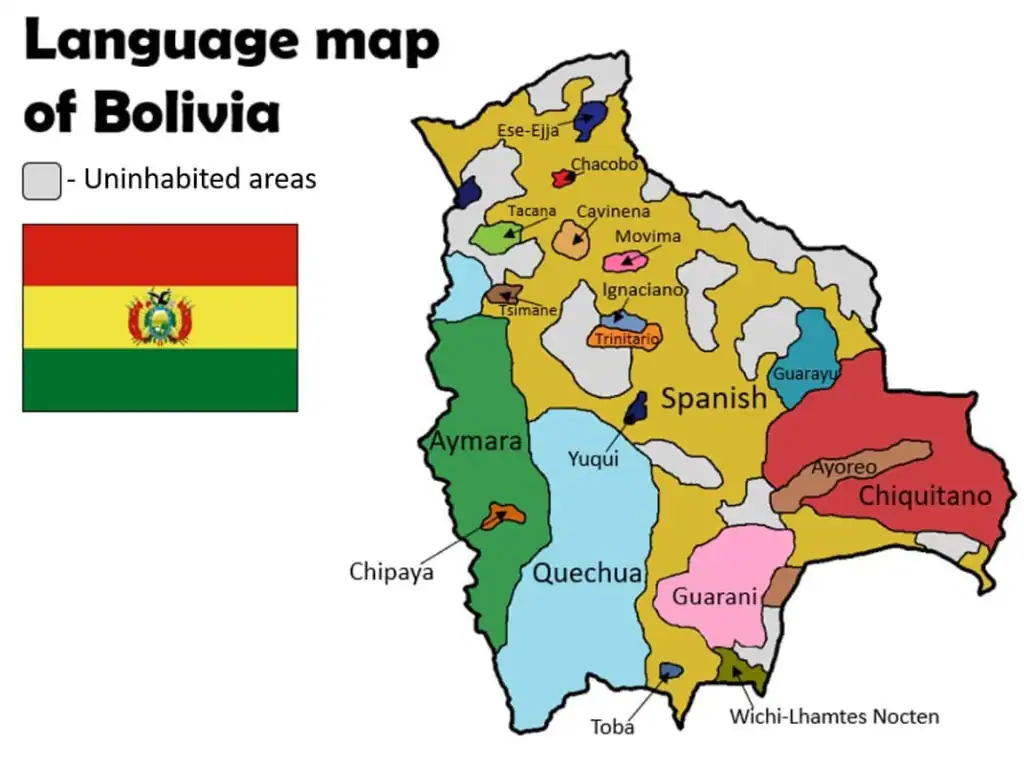
What Languages Are Spoken in Bolivia PDF
I’m working on a free PDF with the top Bolivian phrases & where to use them – drop your email with a note in the “contact” section if you want it when it’s done (no spam, promise – just vibes & vocab).
So What’s the Deal?
So if someone asks what languages are spoken in Bolivia, it’s not a one-line answer.
Spanish? For sure. But also Quechua, Aymara & dozens more depending on where you are. The mix of languages is one of the things that makes Bolivia feel different to anywhere else in South America.
It’s a big deal culturally. It’s tied to people’s roots, to politics, to pride. It’s not just a thing on paper – it’s lived.
And the class stuff? It’s tangled in there too. I’ve written more about poverty in Bolivia if you’re curious how it plays out on the ground.
FAQ: Bolivia’s Languages
Bolivia recognises 37 official languages – Spanish plus 36 indigenous ones.
Spanish, Quechua & Aymara are the most widely spoken.
Not really – it’s mainly heard in tourist spots. A bit of Spanish goes a long way.
Yes – both are officially recognised & used in schools, signs & some local governments.
Final word
Hopefully I’ve given you a bit of inspiration to learn a couple words of each main language depending on where you end up, it really does make a difference! Nothing quite beats watching a locals eyes light up when you absolutely butcher “Hello” in Aymara.
Planning a trip & wondering what you might need besides Duolingo? You’ll want to sort your jabs first. Here’s exactly what vaccines are required to get in – no panic, no fluff.
And once you’re prepped, vaccinated & vaguely ready to wing it, here’s the good bit – best things to do in Bolivia that aren’t just the usual checklist stuff.
Ever had a language win (or massive fail) while travelling Bolivia?
Drop it in the comments – I’m still haunted by the time I accidentally told a woman in Cochabamba that my soup had melons.
Still ate it though. And on that note … Happy Travels!

